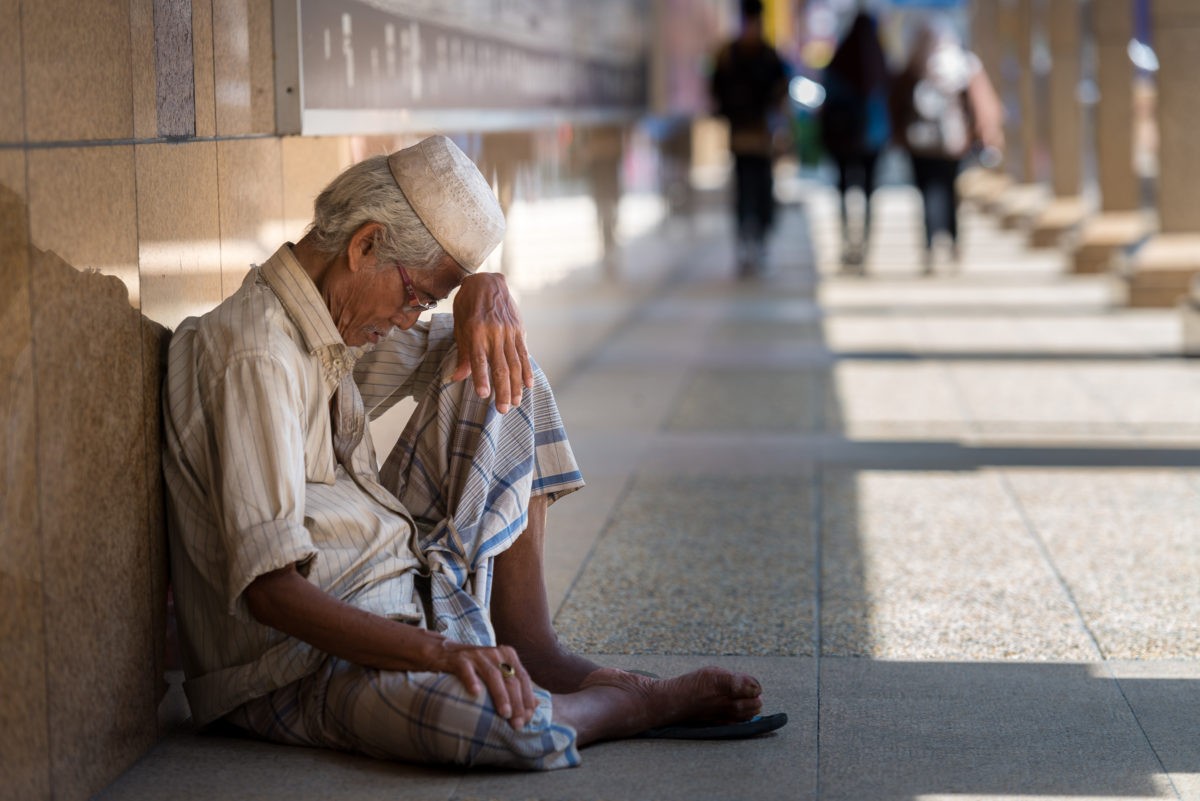GOOD Samaritans carrying out charitable deeds and corporate social responsibility (CSR) initiatives by organisations may be well-intentioned.
However, not everyone agrees that such action is having the intended positive impact, with some arguing that it has had the consequence of encouraging the “lazy” to adopt a “destitute lifestyle”.
This sentiment was very evident in a post uploaded on X (formerly Twitter) by Malaysia Most Viral (@MALAYSIAVIRALLL) where it was argued that many parts of Kuala Lumpur had been conquered by drug addicts, alcoholics and foreigners.
The free food handouts and soup kitchens are causing this number to multiply, with the poster arguing these destitute and homeless individuals should be made to work for their food by cleaning out the vicinity, adding that this would be a win-win situation.

The post also included a short clip featuring a good Samaritan who interviewed the many less fortunate individuals who have made the walkways surrounding KL’s Central Market their permanent abode.
She was seen handing out food packages with her narrating that such work made her realise that everyone needs to be treated with respect and dignity. Their gratitude and kind words also made her feel good and that she is making a difference, she added.
The poster went on to argue that such NGOs were bringing “disaster to the country” while condemning those who championed citizenship for the stateless refugees.

The post has generated 468.6K views with many similarly questioning the effectiveness of these charitable measures.
Here is a sample of what is being said.
A few were of the impression that many of these less fortunate individuals chose to be destitute, with some suggesting it had become a “comfortable existence” especially with the free food.




Another compared it to the “box homes” that are a common sight in the US, pointedly asking what the authorities are doing about it.

Some opined that there were those who preferred to be destitute rather than earn an honest wage or take on responsibilities, citing the many who were able bodied but preferred to “laze” on sidewalks waiting for their free meals to arrive.

Another said his lack of sympathy was from seeing cases of theft and bullying even among the destitute and homeless community.

Meanwhile, another observed the lack of takers when employment was on offer.

Some netizens even claimed that certain NGOs had to do these free food initiatives to enable them to launch crowdfunding campaigns, allowing them to live off those funds!


One even suggested some were doing this to become “famous”.

One lay the blame squarely at the door of the government agencies.

One netizen who is a former NST journalist questioned if the poster ever took the trouble to engage with the destitute or homeless.

Another pointed out these less fortunate individuals included the elderly and those with assorted personal issues,. He scathingly asking who in their right mind would want to live in such circumstances and slammed those who looked down on this demographic.

Another netizen said such negative reactions was typical of Malaysians, asking what was wrong with feeding the less fortunate.

Another user asked why the poster felt the need to lambast those doing charitable deeds. If he did not want to partake in such activities, he need not condemn those who did.

The comments on both sides of the fence underline how thorny an issue this is. Fact remains that the number of destitute and homeless in the city centre is on the rise.
Urgent action is needed to help those who truly need it. After all, NGOs, good Samaritans and CSR programmes are part of the solution, not the problem.
It is the uncaring and the cynical attitude of many Malaysians which perhaps had contributed to a segment of society being left behind. – July 8, 2024
Main pic credit: Wiki Impact









